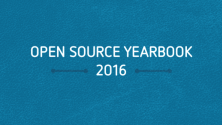One of the problems with becoming a Linux expert is the definition is constantly changing. When I started in the Linux world, to be considered a Linux professional, you had to be able to compile your own kernel. Heck, if you wanted to use Linux on a laptop, you had to compile a custom kernel to even be a user. These days, compiling your own kernel is usually a waste of time. That's not to say it isn't important, but in the open source world we build on the successes of others, and Linux distributions provide us with kernels that work well. Although not always that drastic, the demands on IT professionals change every year.
Here are four vital skills for the Linux pro in 2017:
1. Security
I'm not talking about security experts or security consultants. Those positions and services are certainly important, but with connected devices infiltrating every aspect of our lives, we need to be security conscious in every decision we make. This year, my wife and I purchased a washing machine and a refrigerator, and both of them came equipped with Bluetooth. The idea of hackers breaking into my rinse cycle might seem silly, but any foothold is a potential attack vector.
When we activate any system at work, home, or in our pockets, we should consider the security issues they might represent. And because items like Internet-enabled toasters aren't likely to get timely firmware upgrades, we need to design the rest of our systems around the idea of mundane devices getting compromised. More than ever before, we need to think about attacks coming from inside our firewalls. Don't let your fileserver get hacked by your blender!
2. DevOps
DevOps is no longer a new concept. For the past two or three years, we've been encouraging folks to learn about DevOps so they can succeed in the workforce. That was good advice, but it doesn't mean we should rely completely on automation tools to do our jobs. Chef, Puppet, Ansible, Salt Stack, and similar tools are wonderful, but we need to understand what's happening behind the scenes so when something inevitably goes wrong, we know how to fix it.
With DevOps' programmatic approach to computing, we still need people who can maintain, fix, and understand the systems functioning beneath the layer of code. Without Linux experts, cloud computing is a scary place to live, even if that cloud is in your own server room.
3. Development
As a system administrator for 20 years, I never had the time to learn programming. That might sound like an excuse, but it's the truth. Any development skills I had were basically scripting that helped me do my job faster. Those days are over. While we need to have system administration skills in a DevOps world, we also need system administrators to have programming skills.
If you're a crusty old sysadmin like me, you've probably adopted DevOps and use it on a daily basis. If you truly want to excel, however, you need to learn how to solve problems programmatically and not think of Chef or Puppet code only as configuration files. Every IT professional needs to have at least a grasp of programming concepts, because every aspect of IT is getting abstracted at least somewhat by DevOps code.
4. Soft skills
Often the last thing we think about while preparing for a career are so-called soft skills—social and communication skills—and yet they are probably skills most likely to determine your success. Whether you're looking for a new job, or trying to adjust to the changing landscape of your current career, soft skills are vital.
The lines dividing the various areas of IT are blending, and the ability to communicate well makes those blurred lines an advantage instead of a stumbling block. We live in a world in which developers are spinning up servers, and operations teams are writing Ruby code to maintain server farms. These are bold new ideas in IT, and without people able to communicate between disciplines, the workplace becomes hostile quickly. Plus, IT folks have always needed to communicate effectively with people in other areas of business. If anything, that need is greater now than ever.
As you plan for 2017, what skills are you adding to your skill set? Let us know about them in the comments.





10 Comments